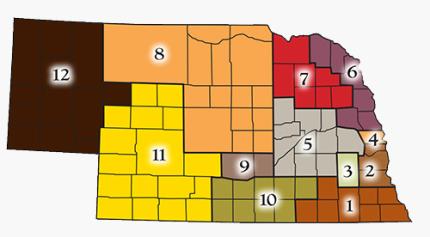County Court
The county courts are trial courts with specified limited jurisdiction. All small claims, probate, guardianship, conservatorship, adoption, and municipal ordinance violation cases are filed in the county courts. Except in Douglas, Lancaster, and Sarpy Counties, where juvenile cases are handled by Separate Juvenile Courts, most juvenile matters are handled by the county courts. County courts conduct preliminary hearings in felony criminal cases. The county courts have concurrent jurisdiction with the district courts in some divorce cases and other civil cases involving $70,000 or less. They also have concurrent jurisdiction with the district court in misdemeanor criminal and traffic infraction cases, but nearly all of those cases are prosecuted in the county courts.
Preliminary hearings in county court are used to determine whether there is enough evidence to establish probable cause in a felony criminal case. If it appears the crime charged has been committed and there is probable cause to believe that the person charged with committing the crime is responsible, the defendant will be bound over to stand trial in district court.
Clerk Magistrates & Judicial Administrators of County Courts
Except in Douglas, Lancaster, and Sarpy Counties, clerk magistrates are responsible for the administrative functions of the county court offices. In Douglas, Lancaster, and Sarpy Counties, these duties are performed by judicial administrators.
Besides administrative duties, clerk magistrates have limited judicial responsibilities which may include accepting pleas in traffic and misdemeanor cases, setting bail, and performing weddings or other judicial services. These officers are hired by county judges of the district in which they serve.

